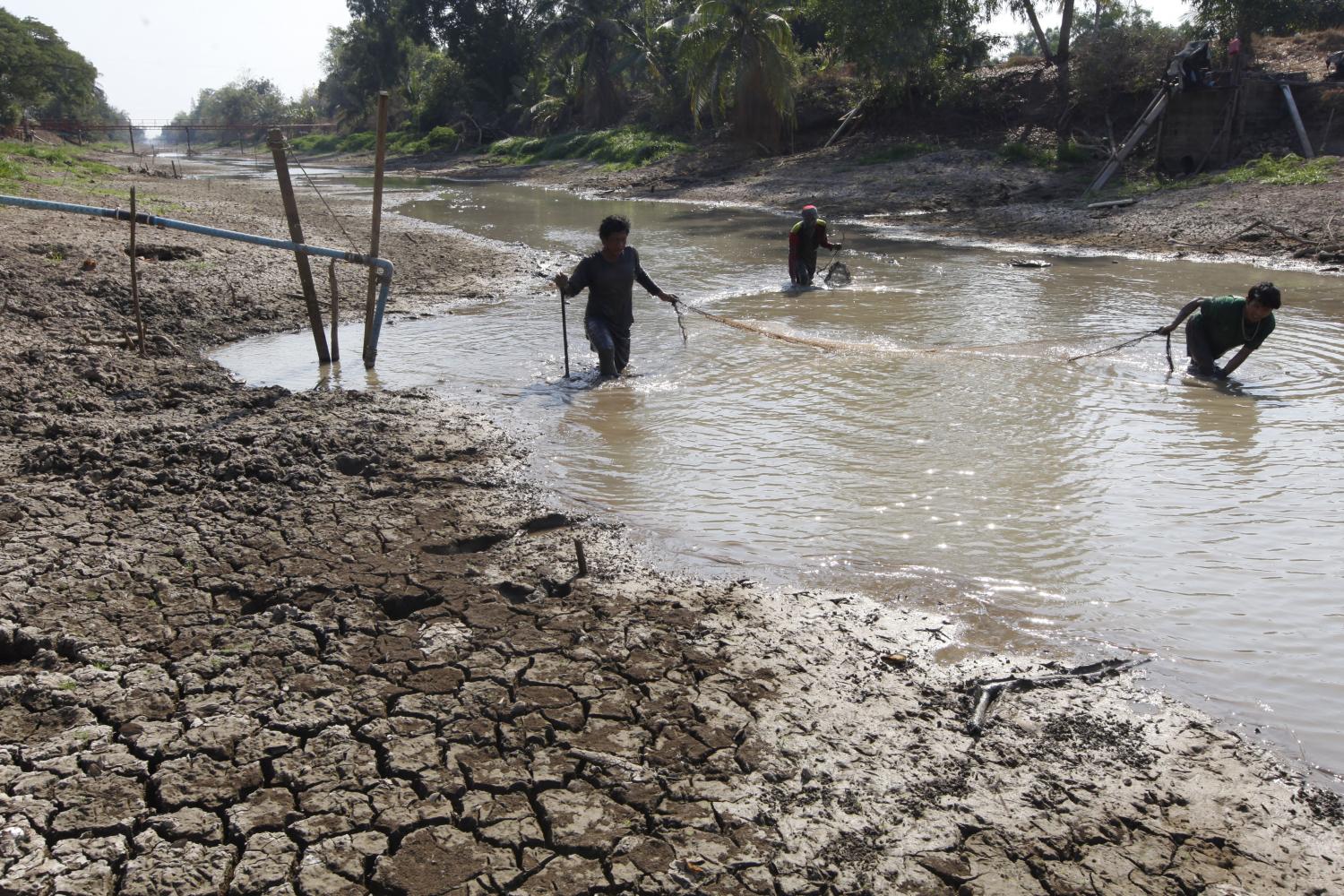
Thailand has been battling seasonal drought for decades, but this year, the Office of National Water Resources (ONWR) is worried the water shortage may get out of hand because of the potential for conflicts in drought-stricken areas.
"During the severe drought in 2015 [when Thailand was still under a military regime], soldiers were deployed to protect natural wells from indiscriminate pumping by local villagers to irrigate their farms," ONWR secretary-general Somkiat Prajamwong told the Bangkok Post in a special interview.
"This time, the government can't do that because our country has become democratised. People will do whatever they want, and this will lead to water disputes ... villagers literally fighting over water."
As the head of the ONWR, Mr Somkiat's name is often heard when the topic of water crisis is brought up.
The agency was created in December 2017 to help address water-related issues, and Section 44 of the interim constitution was invoked to expedite its set-up. As its name suggests, the office is in charge of water resource management and coordinating policies and visions across 20 state agencies.
Prior to its formation, each of these agencies would have different water management policies and rarely would they coordinate their policies with one another.
The office has 100 staff -- 80% of which were brought in from the Royal Irrigation Department (RID). Mr Somkiat himself is a former director-general of the RID, the state agency under the Ministry of Agriculture and Cooperatives that irrigates the nation's farmlands.
The Nakhon Sawan native has a solid background on water management. He received his bachelor's degree on irrigation from Kasetsart University. He went on to study water resource development at the Asian Institute of Technology (AIT), before pursuing his doctoral degree on agricultural and irrigation engineering from Utah State University.
Mr Somkiat has held different positions in various water organisations. He is the secretary-general of the Thai National Committee on Irrigation and Drainage. In 2016, he was named an honorary member and vice president of Asia Water Council.
The ONWR secretary-general said his interest in water management stems from his family background. Born into a humble farming family, he started working on rice fields from a young age.
"I'm not afraid to tell everyone my family's back story," he said. "I grew up ploughing rice fields so I have direct experience which enables me to understand the harsh reality of life as farmers.
"I understand how much water means to them, so it landing a job at the RID was really a dream come true, because then I can really help farmers."
While at the RID, he spent decades building irrigation canals and developing water infrastructures across the country, which range from small dams to mega reservoirs.
His role the ONWR is different. The agency serves more like a think-tank which develops the country's policies.
It is responsible for crafting water management strategies for the country.
One measure that ONWR helped prescribe and implement is the planting restriction which requires farmers to stop cultivating crops during this season's drought.
This measure is designed to manage the demand and supplies of water in the country as a drought looms closer.
It is also behind the government's promotion of less water-intensive crops, the push to provide alternative jobs during the drought to protect incomes and jobs and the decision to compensate farmers who skip on planting this season due to the lack of water supplies.
"We are trying to limit the pumping of water to farmlands because we really have to focus on saving the little water we have for human consumption," he said.
"But in the end, it is up to the government to make sure these measures are obeyed."
He said the ONWR and related agencies are keeping their eyes on possible conflicts with farmers as they begin to prepare their fields for planting over the next few months.
To mitigate the impact of the drought, the government is said to be preparing a raft of measures, which include the provision of compensations to affect farmers.
Bangkok is also expected to launch a number of short-term measures to deal with the water shortage, including the deployment of extra tanks to drought-hit areas and the drilling of wells for groundwater extraction.
Despite these measures, this year's drought is expected to be much more severe according to the Thai Meteorological Department's (TMD), this year's drought will be the worst in four decades.
According to Mr Somkiat, this year's drought is caused by the same weather pattern that caused less-than-average precipitation to fall across Thailand last year.
Last year's storms brought heavy rainfall to some areas, but it wasn't enough to replenish the four major dams which supply millions of people along the Chao Phraya river basin with water, he said.
Precipitation dropped by about 30-40% and as a result, there are only enough water in Tak's Bhumibol dam, Uttaradit's Sirikit dam, Phitsanulok's Kwai Noi Bamrung Dan dam and Lop Buri's Pasak Jolasid dam to supply water for household consumption only.
The Central region will be hardest hit this year, especially the 22 provinces along the Chao Phraya river basin.
Nakhon Sawan, with over 70,000 rai of rice fields, and Kamphaeng Phet will be worst-affected by the drought.
Mr Somkiat also said more farmland will be affected this year because the amount of farmed area has risen by 3 million rai over the past few years.
"There is no way that we could send enough water to supply these farms," he said.
"The situation will get worse because RID might need to release fresh water -- which should really be saved for consumption -- to drive out sea water which are rushing into the Chao Phraya."
"Everyone must work together to save water, or at least use it wisely."
